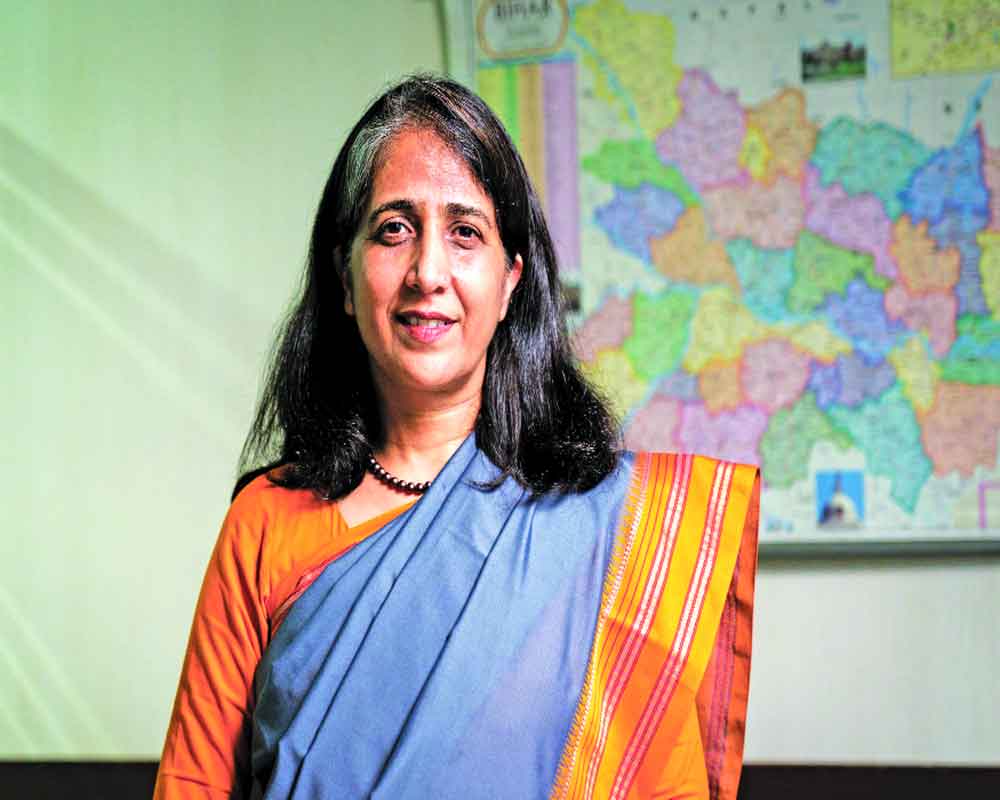Compared to the funds and research carried out on Covid-19 during the past two years, only a fraction of that has been invested to develop dengue vaccine and drugs, despite the disease being around for decades and wreaking havoc every year across countries. Given that the rise in climate change-induced temperature is predicted to fasten viral amplification of the disease, it's time all the stakeholders ie the Government, pharma firms, researchers, and non-profit organizations come together to find a specific treatment for the menace, DR KAVITA SINGH, Director, Drugs for Neglected Diseases initiative (DNDi South Asia) tells ARCHANA JYOTI
What new treatments for dengue are needed?
Presently the doctors manage symptoms as there is no recommended treatment. Dengue-specific treatments are needed to treat the disease at different stages and to reduce the risk of an infection progressing to severe disease.
Why there has been no treatment yet?
Because it has been a neglected infection. It causes a huge disease burden in endemic countries, which are developing countries, with limited resources for R&D. There have been efforts from developed countries and large Pharma and NIH, the USA for research on immunology and vaccine development, but very limited efforts to develop drugs.
One of the most important aspects of developing drugs is understanding the disease pathogenesis. Compared to the research carried out on Covid-19 during the past 2 years, only a fraction of that has been carried out on dengue, despite it being around for decades and causing high mortality in countries such as India (even upto2.6%).
What are the difficulties in developing drugs for viral diseases?
There are many challenges that viruses pose and therefore unlike broad-spectrum antibiotics, we do not have broad-spectrum antivirals. Challenges like viruses multiply inside a human cellor they can evolve to become resistant to some antiviral drugs or they have fewer proteins to target drugs against. The DNDi approach for repurposing drugs to treat dengue includes exploring potential antivirals and host-directed therapy, which is likely to be more successful than, only investigating antiviral drugs for treating dengue. However, for any of these approaches, more funding is required to make these efforts successful
Are we ready to take on the challenge?
DNDi is therefore investing in bringing institutes in dengue-endemic countries together through a Denguealliance with a common objective to find a safe, affordable, and effective treatment for dengue. Through this Dengue alliance, we are presently pursuing joint scientific strategies to advance the pre-clinical development of existing candidates with the intent to repurpose and plan to run clinical trials to test the most promising ones.
We initially aim to screen existing drugs used for other illnesses, to see if they are likely to have satisfactory antiviral effects against the dengue virus and also drugs that could inhibit host pathways involved in the progression of illness to severe disease in cell culture models and animal models. This should be the preclinical phase of the studies.
Since we already know the safety profiles of such drugs, this would enable us to directly go into phase 2 and then phase 3 clinical trials. As a long-term strategy, we will also explore new drug molecules, which could also be beneficial for the treatment of dengue.. We will be starting clinical trials aiming to deliver an affordable, effective, safe, and accessible treatment within five years. We are also working together with diverse partners on diagnostics, regulatory, and access strategies, as well as jointly raising funds and mobilizing resources.
Indonesia has approved Japanese firm Takeda's dengue vaccine, QDENGA (Dengue Tetravalent Vaccine [Live, Attenuated]) (TAK-003) for the prevention of dengue disease caused by any serotype in individuals. Why in India, is the dengue vaccine still not a part of the preventive measures?
Although there is a dengue vaccine called Dengvaxia (CYD-TDV), which is the first vaccine against dengue, licensed in 2015 and available in some countries for people aged 9 to 45 years, the WHO recommends that the vaccine be given only to people with confirmed previous dengue virus infection. As per the Centre for Disease Control and Prevention, "The vaccine manufacturer, Sanofi Pasteur, announced in 2017 that people who receive the vaccine and have not been previously infected with a dengue virus may be at risk of developing severe dengue if they get dengue after being vaccinated." We also wait to see more details on the recently approved Takeda's QDENGA for use regardless of prior dengue exposure.
Kindly tell us about DNDi's recent collaboration with the Translational Health Science and Technology Institute (THSTI), an autonomous body of the Department of Biotechnology.
DNDi India Foundation signed a pact with THSTI in February 2022 under which we both aim to develop a safe, affordable, and effective treatment for dengue. The partnership will conduct preclinical studies with several existing drugs to evaluate their efficacy in lab and animal models before implementing Proof-of-concept clinical trials for the most promising compounds.


























